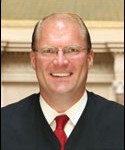View from around the state: The ethical collapse of Justices Michael Gableman and David Prosser
By: Associated Press//September 27, 2016//
View from around the state: The ethical collapse of Justices Michael Gableman and David Prosser
By: Associated Press//September 27, 2016//
— From the Capital Times

As he engaged in a desperate hunt for national money to help Republicans retain control of the Wisconsin Senate in a series of 2011 recall elections, Gov. Scott Walker reached out to Karl Rove. The governor, whose grip on state government was at risk after a mass uprising of Wisconsinites who opposed what they decried as assaults on labor protections, public services and public education, was asking for a big assist from the former political director of the Bush-Cheney White House, who controlled a conservative super PAC known as American Crossroads. In his May 4, 2011, email to Rove, Walker asked for an email list, names of big donors to call, and a “million or two from American Crossroads.”
Even in the world of big-money politics, a “million or two” does not come simply for the asking. A case must be made for that kind of money — and for the names of individuals who could give more of that kind of money. So Walker explained that a veteran Republican operative, R.J. Johnson, would make things work. “R.J. was the chief adviser to my campaign,” wrote Walker, who added that “I always called him my Karl Rove …”
“Bottom line: R.J. helps us keep in place a team that is wildly successful in Wisconsin,” wrote Walker in an email highlighted by The Guardian newspaper recently in a story about documents associated with a John Doe inquiry into allegations that Walker and his associates engaged in criminal wrongdoing. Previous revelations and leaks regarding the John Doe have shined light on the governor’s outreach to Rove and Walker’s bragging about how his “team” ran things in Wisconsin.
But the details contained in the Guardian story, and in the leaked documents themselves, focus particular attention on a line in Walker’s email that described the critical role Johnson played in shaping the state Supreme Court’s conservative majority.
“He ran the effort that defeated the first incumbent Supreme Court justice in decades back in 2008 and Club for Growth-Wisconsin was the key to retaining Justice Prosser,” wrote Walker. Johnson’s name has long been associated with the Wisconsin Club for Growth, a highly secretive, politically aggressive operation that refuses to disclose the sources of funding for the campaigns it runs.
Justice David Prosser had just been re-elected in a brutal April election, which saw the incumbent jurist prevail over his challenger by barely 7,000 votes out of 1.5 million cast.

The favorite of Walker and his allies in the 2008 election was Justice Michael Gableman.
Four years after Walker’s email declared that Johnson and the Wisconsin Club for Growth were vital to electing Prosser and Gableman, these two justices cast decisive votes in a state Supreme Court decision that shut down an investigation targeting the actions of Walker, Johnson and others. That investigation sought to determine whether the governor and his allies engaged in a conspiracy to illegally coordinate campaign activities in the recall fights of 2011 and 2012. The opinion in that 2015 high court ruling, which was written by Gableman, was so sweeping that the Milwaukee Journal Sentinel reported it could “reshape how campaigns are run in Wisconsin because it makes clear campaigns can work closely with outside groups, allowing more political money to flow without the names of donors being disclosed.”
Prosser and Gableman were asked to recuse themselves from the John Doe case, but both refused to do so. In light of Walker’s assertion in his email to Rove — and all the information that has been made available over the past several years with regard to the John Doe inquiry — it is now evident that the refusal put the justices at odds with established law. The U.S. Supreme Court has determined that the due process clause of the U.S. Constitution’s 14th Amendment requires jurists to recuse themselves when there is evidence of actual bias and when so-called “extreme facts” create a “probability of bias.” That standard was established in the 2009 case of Caperton v. A.T. Massey Coal Co., which established that major campaign activity on behalf of a jurist by a party to a case that comes before the jurist creates an appearance of a conflict of interest so “extreme” that the jurist’s failure to recuse himself constitutes a violation of due process protections.
Justice Anthony Kennedy wrote in the high court’s majority opinion: “We conclude that there is a serious risk of actual bias — based on objective and reasonable perceptions — when a person with a personal stake in a particular case had a significant and disproportionate influence in placing the judge on the case by raising funds or directing the judge’s election campaign when the case was pending or imminent.”
In a request that the U.S. Supreme Court overturn the Wisconsin Supreme Court’s decision to shut down a John Doe inquiry into illegal campaign activity, a group of Wisconsin prosecutors argue that Prosser and Gableman should not have heard the case because their campaigns benefited from work by individuals and groups that were a focus of the investigation. “Under any reasonable reading,” the prosecutors argue, those involved in the case “did not receive a fair and impartial hearing” from Wisconsin’s high court.
No matter what action the U.S. Supreme Court takes with regard to evidence of bias and the abandonment of ethical standards by justices on the Wisconsin Supreme Court, there can no longer be any question that Wisconsin legislators, prosecutors and members of the state judicial commission have a responsibility to address clear evidence that Justice Gableman and retired Justice Prosser failed to respect and honor their positions as a public trust and, further, failed to strive to enhance and maintain confidence in our legal system.
Legal News
- State Bar leaders remain deeply divided over special purpose trust
- Former Wisconsin college chancellor fired over porn career is fighting to keep his faculty post
- Pecker says he pledged to be Trump campaign’s ‘eyes and ears’ during 2016 race
- A conservative quest to limit diversity programs gains momentum in states
- Wisconsin prison inmate pleads not guilty to killing cellmate
- Waukesha man sentenced to 30 years for Sex Trafficking
- 12-year-old shot in Milwaukee Wednesday with ‘serious injuries’
- Milwaukee man convicted of laundering proceeds of business email compromise fraud schemes
- Giuliani, Meadows among 18 indicted in Arizona fake electors case
- Some State Bar diversity participants walk away from program
- Wisconsin court issues arrest warrant ‘in error’ for Minocqua Brewing owner
- Iranian nationals charged cyber campaign targeting U.S. Companies
WLJ People
- Power 30 Personal Injury Attorneys – Russell Nicolet
- Power 30 Personal Injury Attorneys – Benjamin Nicolet
- Power 30 Personal Injury Attorneys – Dustin T. Woehl
- Power 30 Personal Injury Attorneys – Katherine Metzger
- Power 30 Personal Injury Attorneys – Joseph Ryan
- Power 30 Personal Injury Attorneys – James M. Ryan
- Power 30 Personal Injury Attorneys – Dana Wachs
- Power 30 Personal Injury Attorneys – Mark L. Thomsen
- Power 30 Personal Injury Attorneys – Matthew Lein
- Power 30 Personal Injury Attorneys – Jeffrey A. Pitman
- Power 30 Personal Injury Attorneys – William Pemberton
- Power 30 Personal Injury Attorneys – Howard S. Sicula











